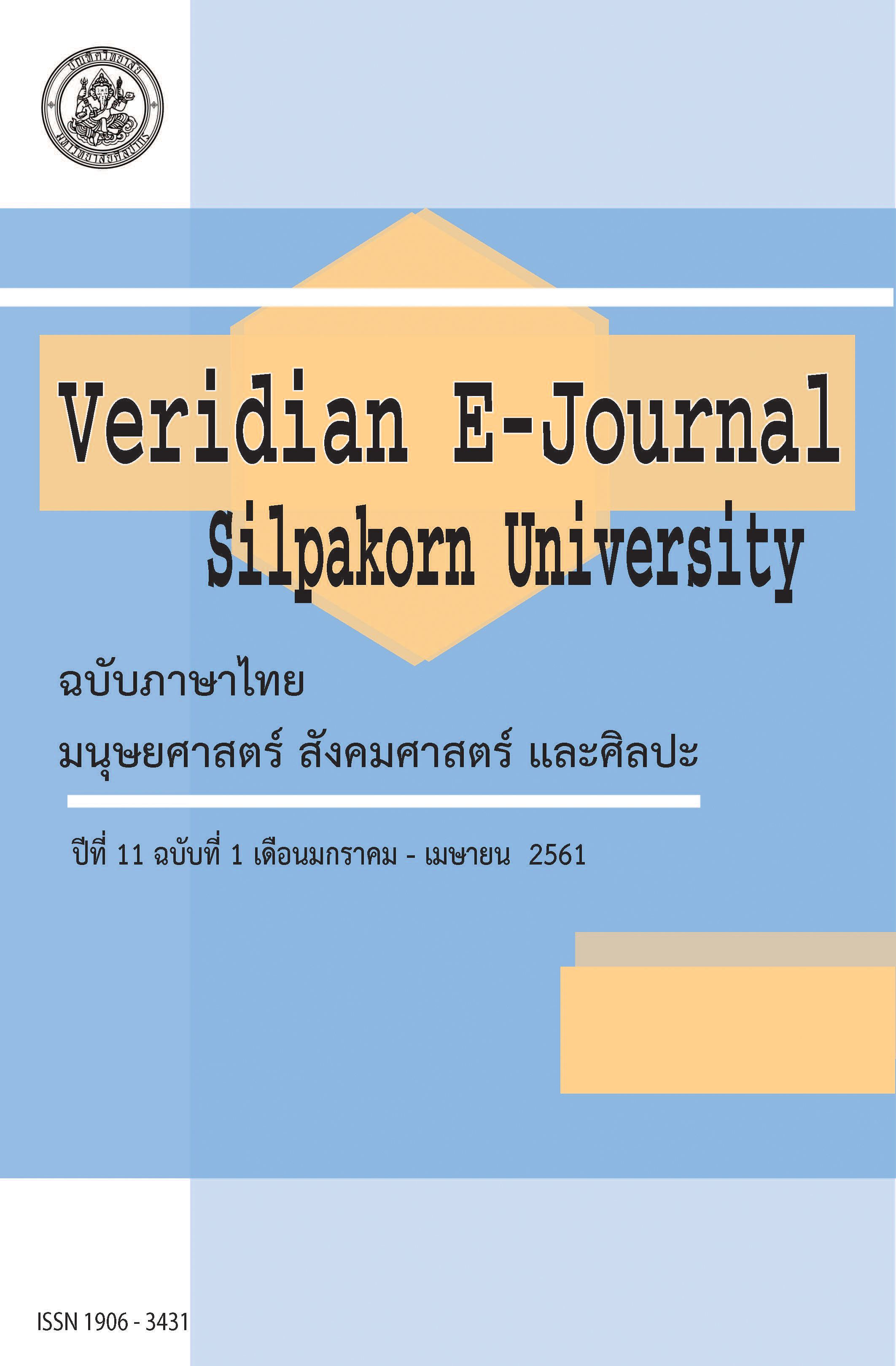การอนุรักษ์และพัฒนาภูมิปัญญาการละเล่นพื้นบ้านของเด็กไทยภาคเหนือ (Conservation and Development of the Thai Children’s Folk Play Wisdoms in the North)
Main Article Content
Abstract
การวิจัยนี้มีวัตถุประสงค์เพื่อ 1.ศึกษาปัจจัยที่ส่งผลต่อการอนุรักษ์ภูมิปัญญาการละเล่นพื้นบ้านของเด็กไทยภาคเหนือ 2.ศึกษาแนวทางการอนุรักษ์และพัฒนาภูมิปัญญาการละเล่นพื้นบ้านของเด็กไทยให้คงอยู่และ 3. ศึกษาคุณค่าของการละเล่นพื้นบ้านของเด็กไทยที่มีผลต่อพัฒนาการด้านร่างกาย อารมณ์-จิตใจ สังคม และสติปัญญา เป็นการวิจัยเชิงปฏิบัติการ กลุ่มตัวอย่าง คือ ผู้อำนวยการโรงเรียน 10 คน ครูผู้สอน 40 คน นักเรียน 400 คน ผู้นำท้องถิ่นและปราชญ์ชาวบ้าน 40 คน เครื่องมือที่ใช้ในการวิจัยประกอบด้วย 1) แบบสำรวจการละเล่นพื้นบ้านของเด็กไทย (ภาคเหนือ) 2) แบบสัมภาษณ์ความคิดเห็นต่อปัจจัยและอุปสรรคการละเล่นพื้นบ้านของเด็กไทย 3) แบบสัมภาษณ์ความคิดเห็นเกี่ยวกับการละเล่นพื้นบ้านของเด็กไทย 4) เอกสารการละเล่นพื้นบ้านของเด็กไทย 5) แบบประเมินการละเล่นพื้นบ้านของเด็กไทยและ 6) แบบบันทึกการดำเนินกิจกรรมการละเล่นพื้นบ้านของเด็กไทย วิเคราะห์ข้อมูลด้วยสถิติพรรณนา ความถี่ และค่าเฉลี่ย
ผลการวิจัยพบว่า 1) ปัจจัยที่ส่งผลต่อการอนุรักษ์ภูมิปัญญาการละเล่นพื้นบ้านของเด็กไทยภาคเหนือ ได้แก่ ปัจจัยด้านบุคคล ครอบครัว เศรษฐกิจ เทคโนโลยีและการสื่อสาร 2) การอนุรักษ์และพัฒนาภูมิปัญญาการละเล่นพื้นบ้านของเด็กไทยภาคเหนือให้คงอยู่ ควรพิจารณากำหนดเป็นนโยบายของสถานศึกษา ชุมชน และหน่วยงานที่รับผิดชอบ ปรับเปลี่ยนวิธีการเล่น โรงเรียนและชุมชนร่วมจัดงานฟื้นฟูการละเล่นพื้นบ้านของเด็กในแต่ละโอกาส เช่น วันสงกรานต์ หรือเทศกาลวันสำคัญต่างๆ เพื่อเป็นการอนุรักษ์และสืบทอดภูมิปัญญาโดยนำความรู้และเทคโนโลยีมาปรับใช้ให้เกิดความรวดเร็วและแพร่หลายในการถ่ายทอดภูมิปัญญาและดำเนินการอย่างต่อเนื่อง สม่ำเสมอและ 3) การละเล่นพื้นบ้านของเด็กภาคเหนือมีผลดีต่อการพัฒนาเด็กทั้ง 4 ด้าน คือ ร่างกาย อารมณ์ – จิตใจ สังคม และสติปัญญา
The objectives of this research were: 1. to study the factors affecting the conservation of the Thai children’s folk play wisdoms in the North; 2. to find ways to sustain these folk play wisdoms; and 3. to study the values of these folk plays toward the children’s physical, emotional, social and cognitive development. This research is an action research. Samples of the study were 10 school administrators, 40 teachers, 400 students, 40 community leaders and local sages. The instruments of the study consisted of an interview from collecting the opinions toward the conservation factors, a survey form, manuscripts documenting the Thai children’s folk play wisdoms, a children’s folk play evaluation form, and a form to record the process of conducting these folk plays. Data were analyzed by descriptive statistic, frequency and mean.
The findings indicated that 1) the factors affecting the conservation of the Thai children’s folk play wisdoms in the North consisted of personal, family, economy, technology, and community; 2) ways to sustain these folk play wisdoms included the followings: putting the children’s folk plays as one of the school policy, community and responsible agencies adapted the playing method for the school, community revived the folk plays in a variety of occasions such as Songkran or other holidays festivals, as a way to conserve and transmit the wisdom, and consistently using knowledge and technology to speed up and disseminate them; and 3) the Thai children’s folk play wisdoms in the North resulted in positive physical, emotional, social and cognitive development of the children.
